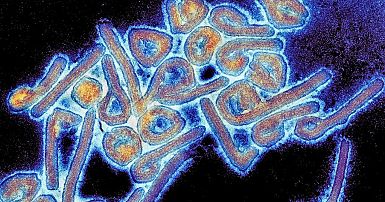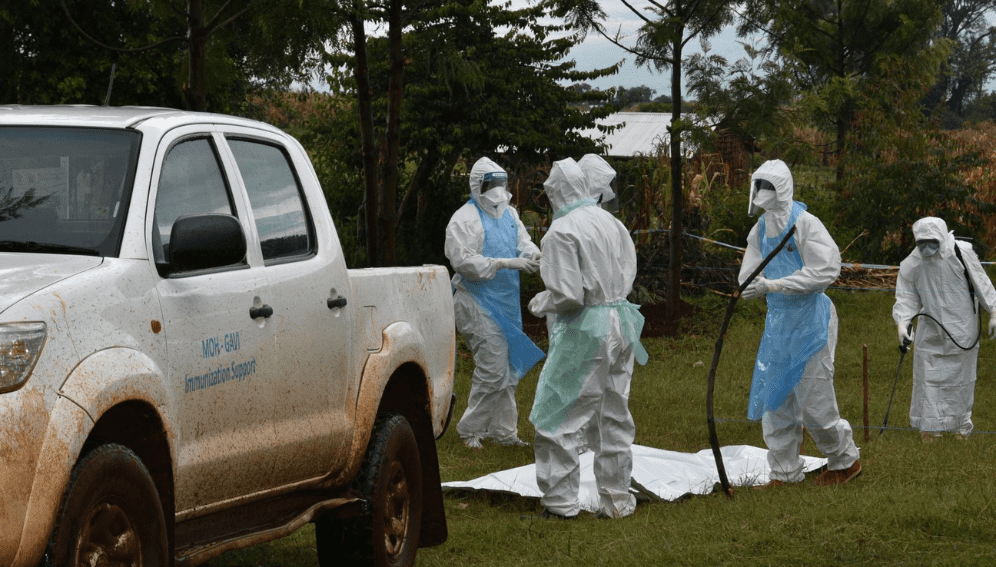WHO Urges Awareness of Marburg Virus: Symptoms, Risks, and Preparedness
The World Health Organization (WHO)
HealthNews: The World Health Organization (WHO) has recently issued a warning to be aware of the Marburg virus, which is a highly infectious disease that has been causing outbreaks in certain regions of Africa. With the ongoing COVID-19 pandemic, it is important to pay attention to other infectious diseases that could potentially cause a global health crisis.
The Marburg virus belongs to the same family as the Ebola virus and causes severe hemorrhagic fever. It was first identified in 1967 in Marburg, Germany, after an outbreak among laboratory workers who had been working with African green monkeys. Since then, several outbreaks have occurred in Africa, with the most recent one being in Guinea in 2021.
R E A D :
- Unraveling the Severity of Marburg Virus: Exploring the Distinctive Symptoms of this Rare Disease
- Bird Flu Spreads Globally, Threatening Poultry Supply and Public Health
- The Deadly Stages of Marburg Virus Infection: Understanding the Risks and Symptoms
- Coronavirus May Survive in Human Brain for Nearly 8 Months
These are symptoms of being infected with the Marburg virus
The symptoms of the Marburg virus are similar to those of Ebola and include fever, headache, muscle aches, and fatigue. As the disease progresses, patients may experience vomiting, diarrhea, abdominal pain, and bleeding from the eyes, ears, and nose. In severe cases, the virus can cause organ failure and death.
The Marburg virus is transmitted through contact with the bodily fluids of an infected person, such as blood, vomit, and saliva. It can also be spread through contact with contaminated surfaces or objects. Healthcare workers and family members of infected individuals are at the highest risk of contracting the virus.
There is currently no specific treatment for the Marburg virus, and patients are often treated with supportive care, such as intravenous fluids and pain medication. However, early detection and isolation of infected individuals can help prevent the spread of the virus.
The WHO is calling for increased awareness and preparedness for the Marburg virus, particularly in countries that are at high risk of outbreaks. This includes ensuring that healthcare workers have access to personal protective equipment and training in infection prevention and control measures.
 |
| The Marburg virus, HealthNews // Dreamstimes |
The WHO is recommending that countries at risk of Marburg virus outbreaks develop and implement preparedness plans that include early detection and rapid response measures. This involves training healthcare workers to recognize and respond to suspected cases, setting up isolation facilities, and establishing effective communication and coordination between health authorities, communities, and other stakeholders.
The WHO is also advising countries to conduct risk assessments to identify areas and populations that are most vulnerable to Marburg virus outbreaks. This includes assessing the level of preparedness of healthcare facilities and the availability of diagnostic tests, treatments, and vaccines.
The development of diagnostic tests and potential treatments for the Marburg virus is a priority for the WHO and its partners. In recent years, there has been progress in developing experimental drugs and vaccines that have shown promise in treating other viral hemorrhagic fevers, such as Ebola.
For example, the experimental drug Remdesivir has shown some efficacy against Ebola and has been used to treat COVID-19. Researchers are now testing whether it can be effective against the Marburg virus. Similarly, the experimental vaccine rVSVΔG-ZEBOV-GP, which has been used to vaccinate healthcare workers against Ebola, is being evaluated for its potential to prevent Marburg virus infections.
The WHO is also working to improve public awareness and understanding of the Marburg virus and other infectious diseases. This includes providing accurate and up-to-date information about the risks, symptoms, and transmission of the virus, as well as promoting hygiene and infection prevention measures.
 |
| The Marburg virus, HealthNews // Euronews |
Ultimately, the WHO is calling for increased investment in global health security to prevent and control outbreaks of infectious diseases, such as the Marburg virus. This involves strengthening health systems, improving surveillance and response mechanisms, and ensuring equitable access to vaccines, treatments, and other health technologies.
The Marburg virus is a serious threat to global health security that requires urgent attention and action. The WHO is urging countries to be prepared and take proactive measures to prevent and control outbreaks of the virus. By working together, we can protect our communities and prevent the spread of infectious diseases.


No comments:
Post a Comment